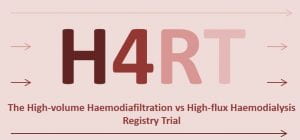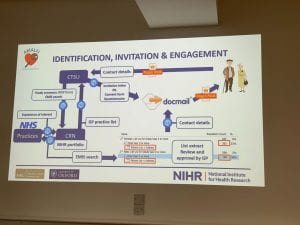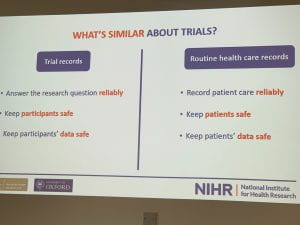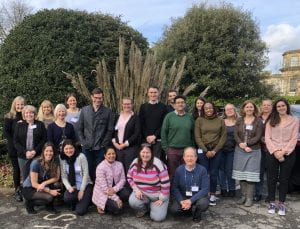NIHR put out a Signal to the VICI Trial
The results of the VICI Trial were published in The Lancet earlier this year – a significant achievement for all involved at Bristol Trials Centre. More recently, the NIHR selected the VICI Trial for one of their Signal pieces, highlighting the importance of this work to the NIHR and the community.
The VICI Trial found that the heart failure drug, eplerenone, showed no benefit for treating the eye disease chronic central serous chorioretinopathy (CSCR). Eplerenone has been widely prescribed off licence for this condition based on the results of a few small trials and anecdotal evidence. The VICI Trial was the first randomised controlled trial with adequate power to evaluate the efficacy of eplerenone for CSCR. Based on the results of the trial, it is strongly recommended that eplerenone is no longer prescribed for CSCR.
Trial manager, Abby O’Connell said: “It’s really satisfying to have been involved in a clinical trial that had such a clear and clinically important outcome, and the team are really pleased that our work has been recognised in this way”.
HTA 15/80/52 – The High-volume Haemodiafiltration vs High-flux Haemodialysis Registry Trial (H4RT)
 Trial Manager: Dr Sunita Procter (@sunitaprocter)
Trial Manager: Dr Sunita Procter (@sunitaprocter)
Chief Investigator: Dr Fergus Caskey (@fjcaskey)
You can read more about the background of the H4RT.
This trial aims to establish the effectiveness of haemodialysis versus haemodiafiltration in the treatment of kidney disease. End stage kidney disease affects around 65,000 people in the UK. Almost half of these people will have blood cleaning treatment known as haemodialysis (HD) at a hospital.
The addition of filtration (the removal and replacement of fluid) to regular haemodialysis is known as haemodiafiltration (HDF). This does not change the dialysis procedure from the patient perspective, as it is still four hours three times a week. It does, however, require a change in equipment and nurse practice.
By removing toxins more effectively, HDF may reduce infection rates and improve survival and quality of life of patients.
H4RT is a non-blinded Randomised Controlled Trial comparing the clinical and cost-effectiveness of high-volume HDF compared with high-flux HD in the treatment of end stage kidney disease.
H4RT have recruited 1038 patients (67%) of the target 1550 patients from 28 sites in the UK since opening in November 2017, with recruitment until 31 March 2021. There is a H4RT Investigator meeting planned for the 16 September 2020 at Wills Hall, Bristol.
Twitter handle: @H4RT_UK
NIHR Statistics Routine Data Group
On 4 March 2020, BTC welcomed over 50 delegates to the third NIHR Statistics Routine Data Group workshop, supported by Bristol BRC. The topic for the workshop was “routine data within clinical trials”. Alongside a welcome and overview of BTC studies, speakers from Oxford University, Imperial College, Kings College London and UCL gave interesting presentations on their experiences, challenges faced and lessons learned from undertaking efficient trials utilising routine data. There was plenty of networking and good discussions. Plans are in place for developing joint publications that would benefit statisticians who are new to working with routine data.
Third GAP Investigators’ Meeting
The third GAP study Investigators’ meeting was held recently. It was a great opportunity for GAP study teams from different sites to meet,
offer tips and share experiences to support each other in the running of the trial. There was a lot of positive feedback from the meeting;
attendees reported that the meeting improved their knowledge about the study, they found it useful, felt included and were able to ask questions.
Currently, patients are prescribed opioids such as morphine after surgery to provide pain relief. The GAP study aims to find out whether prescribing the drug gabapentin, alongside opioids and other drugs, improves pain control, leads to fewer side effects overall and a quicker recovery. The study is recruiting patients having heart, thoracic (e.g. lung) or abdominal surgery, and has currently recruited over 800 participants – over halfway to our target! We are extremely grateful to all staff and patients who have been involved so far. A big thank you also goes out to all patients who are currently completing their follow up questionnaires by post and over the phone; we really appreciate your time and effort in making this study a success.
Please visit the GAP Study website for further information.
This study is funded by the National Institute for Health Research – Health Technology Assessment Programme (15/101/16). The views and opinions expressed therein are those of the author(s) and not necessarily reflect those of the National Institute of Health Research, NHS, or the Department of Health and Social Care.



